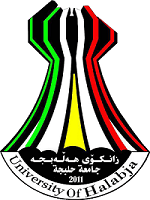Countering the coronavirus within the framework of international law and the guidelines of the World Health Organization
DOI:
https://doi.org/10.32410/huj-10326Keywords:
Corona virus, Epidemic Diseases, World Health Organization(WHO), Human Rights, Public International LawAbstract
The emergence of the Covid 19 virus as a global hot topic has been studied from various angles. In addition to health issues, the virus has spread to other areas such as politics, economics and society. It is said that from now on the world will be divided into two historical periods before and after Corona. So far, the consequences of the corona have been considered in many ways, but so far there has been less opportunity to address this issue in terms of international law and human rights law. Especially in the Kurdistan region, there is no such opportunity for legal attitudes in this regard. Of course, law-abiding articles have been written in other countries during this period; Especially in Iranian universities, important scientific articles have been written. Therefore, we seize the opportunity and consider the use of related articles to be aware of the legal process and compensation for material and human losses, in addition to the scientific and legal process and the way of interacting with the wrong countries. In this regard, the main question of this article is what is the responsibility of the countries of the world in dealing with the countries responsible for the spread of this pervasive virus, legally? In response, countries around the world seem to have to work in concert and stand up to the center of procrastination.
References
سەرچاوەکان
ئەلف) فارسی
-زمانی، سیدقاسم (1399)، "بحران کرونا و تعهد بینالمللی دولت برای تضمین سلامت شهروندان"، تهران: دانشگاه علامه طباطبایی، دانشکده حقوق و علوم سیاسی.
-ضیائی بیگدلی، محمدرضا (1399)، "کرونا و حقوق بینالملل، امکانسنجی طرح دعوا علیه چین در دیوان بینالمللی دادگستری"، تهران: آکادمی حقوق بینالملل ضیائی بیگدلی.
-عسکری، پوریا (1399)، "کرونا و حقوق بینالملل"، تهران: آکادمی حقوق بینالملل ضیائی بیگدلی.
-مصفا، نسرین (2020)، "کرونا و آیندەی همکاریهای بینالمللی، تهران: انجمن ایرانی مطالعات سازمان ملل متحد (Iranian Association For UN Studies).
ب) عربی
-الجبوري، خلف رمضان (2020)، رؤية للوضع الدولي الراهن في ظل كورونا واستشراف للوضع الدولي مابعد كورونا. Retrieved from https://www.uomosul.edu.iq/news/ar/rights/55737
-السقاف، محمد علی (2020)، "کورونا"والقانون الدولی، لندن: جریده الشرق الاوسط.
-سلامه، ایمن (2020)، دعاوی قضائیه تطالب بتغریم الصین، قاهره: جریده الزمان.
-هومان رایتس وتش (2020)، الابعاد الحقوقیه فی الاستجابه لفیروس "کرونا" المستجد، نيويورك: www.hrw.org.
ج) ئینگلیزی
-Huremagić, H., & Kainz, F. (2020). COVID-19, China and International Aviation Law: A ticket to The Hague? , from Blog of the European Journal of International Law (EJIL): Talk https://www.ejiltalk.org/covid-19-china-and-international-aviation-law-a-ticket-to-the-hague/
-Shokar, P. (2020, May 13). Will COVID-19 usher on another decade of austerity within the United Kingdom? What does this mean for the protection of economic, social and cultural rights (ESCR)? Retrieved from https://www.ejiltalk.org/author/pshokar/
-TZENG, P. (2020). Taking China to the International Court of Justice over Covid-19. from Blog of the European Journal of International Law (EJIL): Talk https://www.ejiltalk.org/taking-china-to-the-international-court-of-justice-over-covid-19/
-UN Economic and Social Council. (2000). General Comment No. 14: The Right to the Highest Attainable Standard of Health (Art. 12 of the Covenant). (E/C.12/2000/4). Retrieved 24 July 2020, from UN Committee on Economic, Social and Cultural Rights (CESCR).
https://www.refworld.org/pdfid/4538838d0.pdf
-UNAIDS. (2000). The Responsibility of the Security Council in the Maintenance of International Peace and Security: HIV/AIDS and International Peacekeeping Operations. from UN Security Council Resolution.
https://data.unaids.org/pub/basedocument/2000/20000717_un_scresolution_1308_en.pdf
-United Nations. (2018). Security Council Condemns Attacks by Armed Groups in Democratic Republic of Congo Jeopardizing Response to Ebola Outbreak. Retrieved from.
https://www.un.org/press/en/2018/sc13559.doc.htm
-United Nations Conference on Trade and Development (2020). Global trade impact of the coronavirus (COVID-19) epidemic. Retrieved 24 July 2020.
https://unctad.org/en/PublicationsLibrary/ditcinf2020d1.pdf
-world Health Organization. (2020a). Coronavirus disease (COVID-19) pandemic. Retrieved from https://www.who.int/emergencies/diseases/novel-coronavirus-2019
-World Health Organization. (2020b). WHO Director-General's statement on IHR Emergency Committee on Novel Coronavirus. Retrieved from.
-World Health Organization. (2020c). World experts and funders set priorities for COVID-19 research. Retrieved from https://www.who.int/news-room/detail/12-02-2020-world-experts-and-funders-set-priorities-for-covid-19-research
-World Health Organization. (2020, July 20). WHO Director-General's opening remarks at the media briefing on COVID-19. Retrieved from.
-BBC Persian. (2020). Retrieved April, 2020, from BBC https://www.bbc.com/persian/iran-52178693.
-Commission, I. L. (2016). Draft Articles on the Protection of Persons in the Event of Disasters. United Nations, Report of the International Law Commission: Sixty-eighth Session (2 May–10 June and 4 July–12 August 2016). General Assembly, Official Records, Seventy-third Session, Supplement(10), 13-73. DOI: https://doi.org/10.18356/582d9f07-en
-Organization, W. H. (1995). Constitution of the world health organization.
-Organization, W. H. (2008a). Implementation of international health regulations (2005). Retrieved from https://www.who.int/ihr/finalversion9Nov07.pdf.
-Organization, W. H. (2008b). International health regulations (2005): World Health Organization. United Nations human rights. (1948).
-International Human Rights Law. Retrieved from.
Downloads
Published
Issue
Section
License
Copyright (c) 2020 Bafraw Rauf Hama Yusuf

This work is licensed under a Creative Commons Attribution-NonCommercial-NoDerivatives 4.0 International License.
Authors who publish with this journal agree to the following terms:
- Authors retain copyright and grant the journal right of first publication with the work simultaneously licensed under a Creative Commons Attribution License [CC BY-NC-ND 4.0] that allows others to share the work with an acknowledgment of the work's authorship and initial publication in this journal.
- Authors are able to enter into separate, additional contractual arrangements for the non-exclusive distribution of the journal's published version of the work (e.g., post it to an institutional repository or publish it in a book), with an acknowledgment of its initial publication in this journal.
- Authors are permitted and encouraged to post their work online (e.g., in institutional repositories or on their website) prior to and during the submission process, as it can lead to productive exchanges, as well as earlier and greater citation of published work (See The Effect of Open Access).






